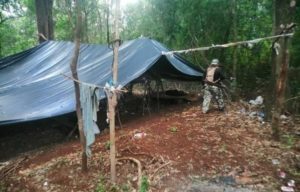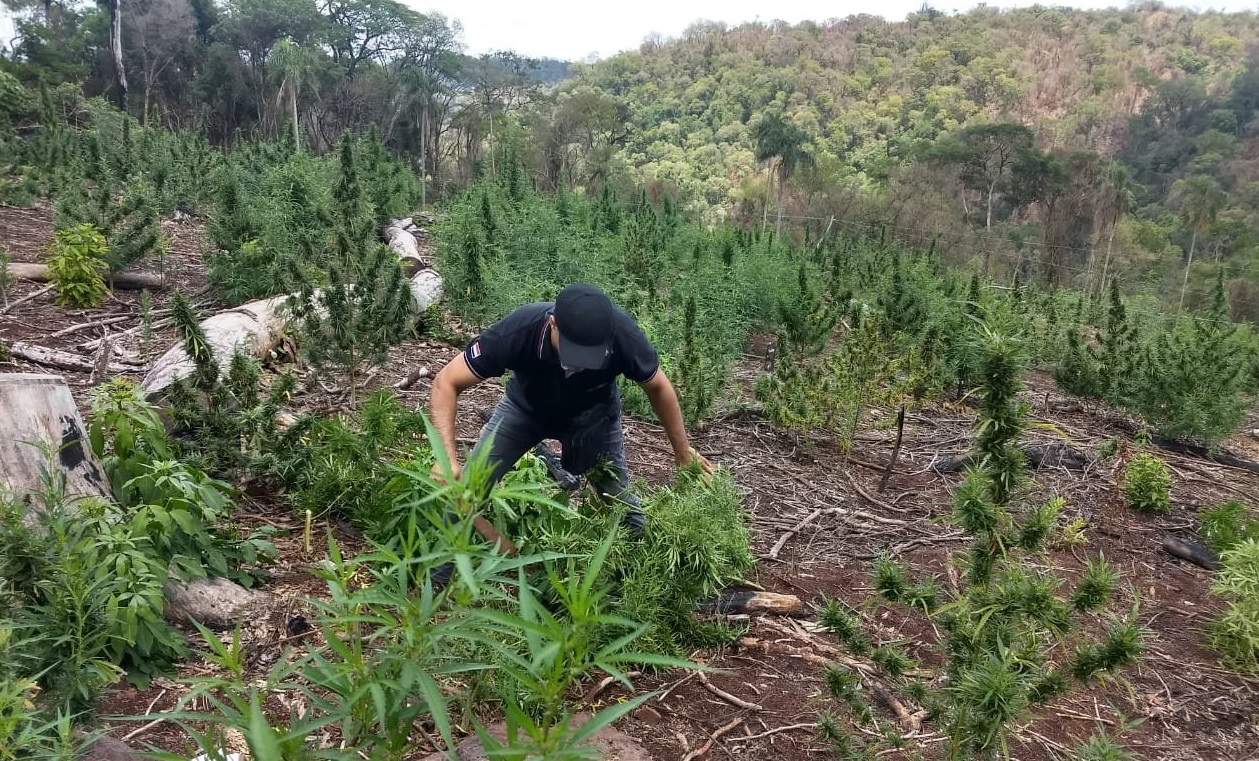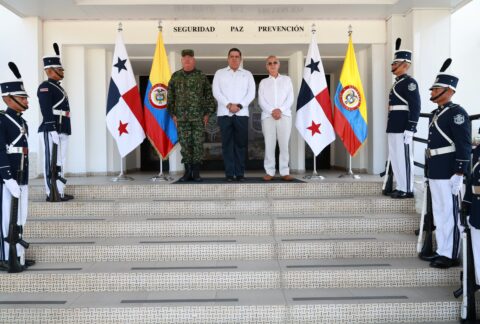The Paraguayan National Anti-Drug Secretariat (SENAD, in Spanish) deployed operations to eradicate marijuana plantations and narco-camps in natural reserves. Agents carried out the first operation on December 2, in San Rafael Park, Itapúa department, where traffickers have been destroying the vegetation to plant cannabis crops.
After venturing into wooded and protected areas near the towns of Las Mercedes and San Miguelito, the units found an open area amid large trees.
There, they found nearly 13 hectares of illegal crops. “[Service members] destroyed 40 tons of marijuana in San Rafael,” SENAD said in a statement.

In the area surrounding the property, agents incinerated three clandestine camps and destroyed 180 kilograms of chopped cannabis.
“We hit the finances of trafficking schemes and added security to spaces with great environmental value,” SENAD said.
Narcotics agents also intensified patrol and surveillance efforts in Morombí Natural Reserve, which protects almost 25,000 hectares of forests and wetlands in Caaguazú and Canindeyú departments.
Information that the force had gathered showed that large-scale marijuana plantations were also likely in Morombí.
SENAD’s objective is to provide “operational protection and rapprochement to areas affected by deforestation due to narcotrafficking,” the force indicated in statements published on the Última Hora website.
From 2004 to 2019, deforestation has affected more than 9,500 hectares in priority conservation areas in Paraguay, according to the World Wildlife Fund’s Geographic Information System laboratory.
“To be able to plant marijuana in protected forests, it’s necessary to ‘clear the land.’ For this reason, after cutting down the trees and selling the wood, narcotraffickers burn the logs and branches that they can no longer sell,” the international environmental news portal Mongabay reported.
“The trees that are not commercialized end up in clandestine ovens at the Morombí Reserve,” Mongabay reported. “According to the Paraguayan Office of the Attorney General, traffickers smuggle the coal to Brazil.”









